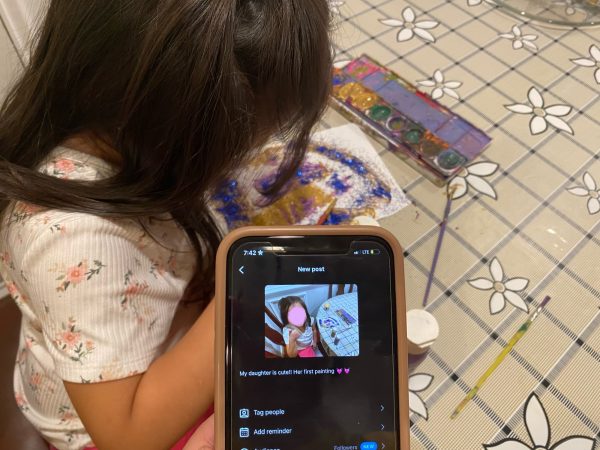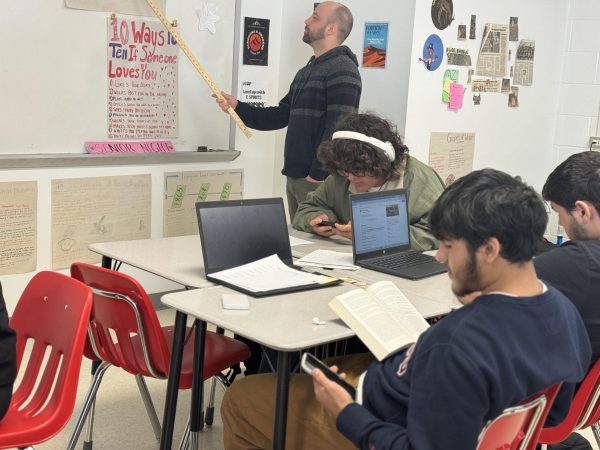Technology, not always a solution in class
Does smarter technology necessarily mean a smarter classroom? With the technological age that we live in, it is understandable that FCPS and teachers would want to include technology in the classroom. From using SMART boards to Movie Maker and using social media, teachers are finding all sorts of ways to integrate technology in the classroom. But more often than not, teachers just assume students have access to this technology and know how to use it. After all, a teacher’s job is to teach, shouldn’t they at least take the time to teach students how to use new programs before throwing it in our faces?
The majority of the time they just assume that we know everything in terms of using smart phones and new technology, but not all students are well versed on the subject. Is it right if a student who could be the brightest one in the classroom but just happens to be technologically challenged receives a lower score than another student just because they don’t spend all of their spare time glued to a screen?
If teachers insist on adapting their tools used in the classroom, then they should also adapt their assignments to fit our current technologically based society. Is it really necessary to still give students research assignments when they can find information at the click of a button? It requires no mental strength to type in “when was the civil war fought” or “where do jaguars live”.
These papers were mentally beneficial in grade school when we had to spend hours searching through books and encyclopedias for information, but now they are just outdated and much too simplistic.
Reading novels is a great way to expand our literary skills, but with access to SparkNotes and various other websites it has become too easy to cheat the system. I can honestly say I’ve read only two books throughout my high school experience. As a student in IB HL English I was able to pass tests and get good grades on projects without reading the literature that it was based off of. Why is that? Technology. Technology has become the easiest scapegoat for slackers and procrastinators like me who’d rather watch television than read a 300 year old 400-page novel about a mundane story that we don’t care about. Instead they should have us practicing our speaking skills, reading up on new technology, or training us how to use new technology that we will eventually use in the work place.
The technological invasion of the classroom has also become an invasion on our free time. I have had teachers use blackboard as a way to assign homework on Friday and Saturday nights. I understand them wanting for us to put in extra time into our studies, but I’d like to remind them that FCPS weeks are five days long, not seven.
Teachers also utilize blackboard as a way for kids to turn in all of their assignments on time even if they have an excused absent. Yes, this is a good way to crack down on slackers who want to get extensions on big projects, but kids who are sick in bed with fevers or various other illnesses are not always in the mental condition to be cranking out several thousand word essays. A student’s absence should be respected, this is a day of rest physically and mentally and they should by no means still be stressing about turning assignments in.
I still remember almost everything from my freshman World History 2 class. One of the most aggravating yet beneficial policies of the classroom was that we had to handwrite our papers. Our only tool we could use was our minds, maybe this is why I can still recite the years and dates of all of the major wars over the past centuries. My teacher covered centuries of history with just his mind, voice, and a white board; not a computer in sight.

This is Gaby's second year on staff. She was a staff writer her sophomore year and is currently a lifestyles editor. Gaby has always had a passion for...





